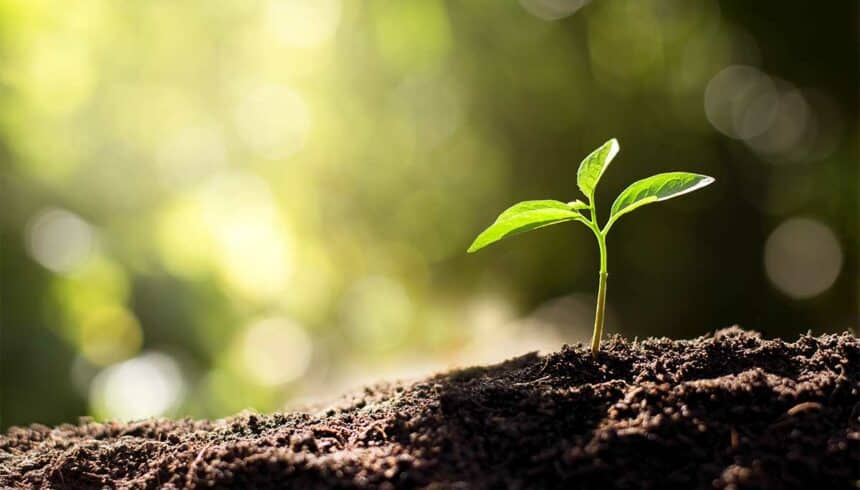While it isn’t possible for economists and financial experts to tell exactly what the economic fallout from the COVID-19 pandemic will be in the long-term, most agree that there have been, and will continue to be, severely negative impacts on the global economy for some time to come.
Global stock markets suffered dramatic falls as a result of the virus, with the Dow Jones reporting its largest-ever single day fall of almost 3,000 points on March 16, 2020 – smashing its previous record of 2,300 points that was set only four days earlier.
Despite the clear danger that the global economy is in, there are also reasons that inspire a glimpse of optimism that a global financial collapse can be avoided. Now is a time for global collaboration and an opportunity for a green economic reboot.
Continue reading to discover the importance of finding the balance between environment and economy as we move into a world beyond COVID-19.
The economic damage caused by COVID-19 largely stems from a fall in demand, meaning that there aren’t consumers purchasing the goods and services that are available across the global economy. The damage can be seen most clearly in heavily affected industries like travel, tourism and hospitality.
The UN Secretary-General, António Guterres, noted this is a “make or break moment for the planet”. As political and business leaders seek to reboot the global economy, how resources are prioritised and the need to restructure existing systems sit at the front and centre of people’s minds.
The UN warns that the choices made today could either secure human, economic and environmental health for generations to come, or take the planet down a grim path that perpetuates the suffering we are witnessing today and in the future.
The natural environment plays an important role in national and international economies, acting as a direct input into production through the number of different services and resources it provides.
Natural resources, like minerals and fossil fuels, are currently huge driving forces behind the production and manufacturing of goods and services throughout supply chains. Not only does that, but the natural environment acts as a sink for emissions and waste to be filtered out.
Poor environmental quality often affects economic growth and human wellbeing, ultimately lowering both the quality and quantity of resources due to human health impacts.
A healthy environment leads to a healthy economy. It’s a false trade-off to assume the choice is between economic growth and environmental protection.
Protecting the environment and encouraging economic growth are often seen as competing aims. While demand for environmental protection is growing, it could come at a short-term cost for businesses. Currently, spending on environmental protection unavoidably diverts the resources of regulated industries from their core business practices and processes.
If internationally competing businesses don’t have to comply with environmental policies, this spending also worsens the global competitiveness of the industries affected. Naturally, this notion is unappealing to business leaders and executives.
Striking that balance between environment and economy relies on sustainable policies that help to create an adjustment of economic structures aligned with cleaner, greener business practices. Restructuring the global system to accommodate a green economy for sustainable development is an essential, but tall order.
What is a Green Economy and Sustainable Development?
A green economy is widely recognised as an economic system that emphasises the importance of being low carbon, resource-efficient and socially-inclusive.
UN Environment states that green investments must be both enabled and supported through targeted public expenditure, international policy reforms as well as changes in taxation and regulation. The key objective of a green economy is to promote a path for development that understands natural capital as a critical economic asset and a source of public benefits.
A green economy works alongside the idea of sustainable development to create a new focus on the economy, investment, capital & infrastructure, employment, and professional skills that underpin positive social and environmental outcomes across the globe. In short, a green economic model delivers a macro-economic approach to sustainable economic growth.
Multi-stakeholder partnerships that promote a shift towards a global green economy are supported to accelerate sustainable changes in both consumption and production patterns throughout the world.
In addition to Governments and not-for-profit organisations, UN Environment has actively increased its engagement with the private sector in order to promote resource efficiency and green economic principles among key influencers.
Beyond the COVID-19 pandemic, the three main areas of focus required to successfully reboot the global economy aligned with environmental sustainability include:
- Advocating for a macro-economic approach to sustainable economic growth regionally, sub-regionally and nationally.
- Providing greater access to green finance, technology and investments for businesses to remain competitive in an evolving market.
- Delivering support to countries to facilitate development and the mainstreaming of macro-economic policies that enable the smooth and efficient transition to a green economic model.
While COVID-19 has been devastating economically in a number of ways, the pandemic has also demonstrated that human societies are capable of transforming themselves more or less overnight. Suddenly, we have entered into a new world with a vastly different economy that has provided a wake-up call to stop exceeding the planet’s limits before it’s too late.
Discover Sustainable Economic Growth with INAA
Here at INAA, we connect accounting firms who aim to deliver quality professional services around a shared vision to make global business personal, and take personal business global.
We’re the International Association of Independent Accounting firms, established over 25 years ago to facilitate cross-border business. Our collaborative association of international businesses is committed to being a part of the conversation around environmental sustainability and building a sustainable global economy.
Join today to start building powerful business relationships.
